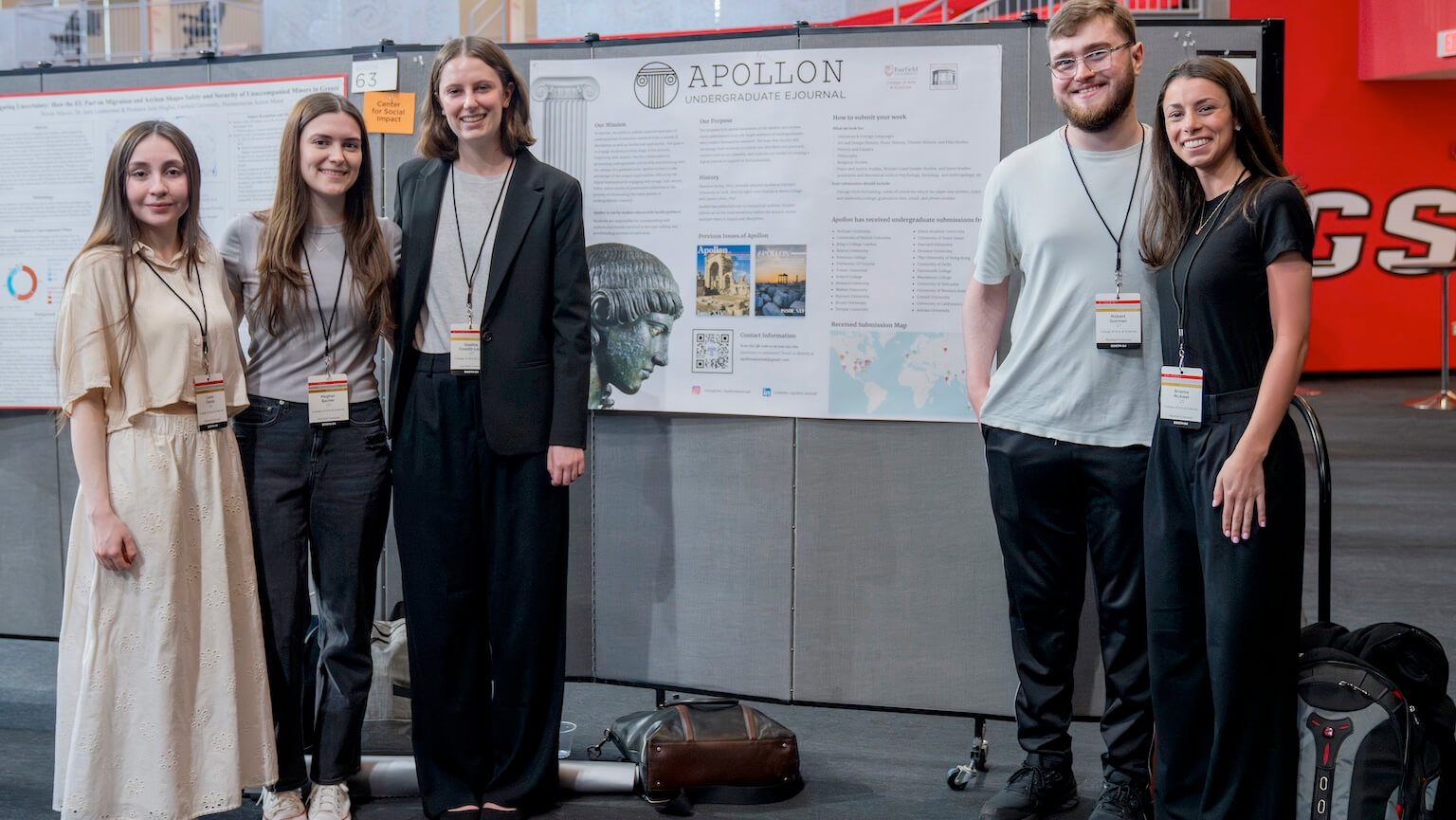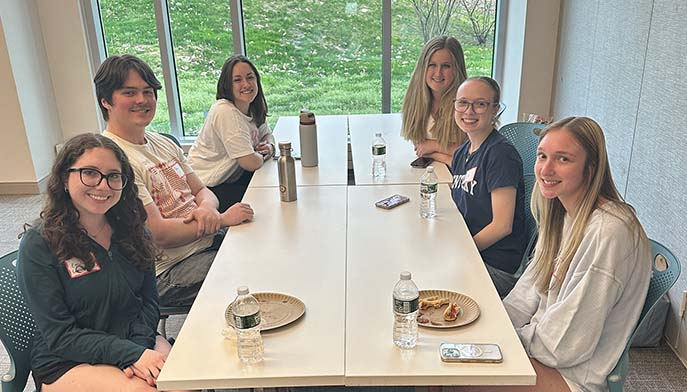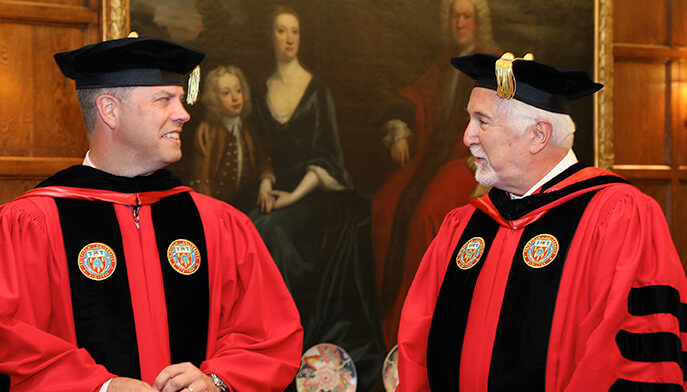As art history major Emma Dobrovich ’26 cast about for an opportunity to do research that might put her on a career path, Professor of Art History and Visual Culture Marice Rose, PhD suggested the perfect vehicle: the Magis course in digital publishing.
"Digital Publishing in the Humanities" is an all-hands-on-deck immersive experience in the publication of the Apollon Journal, a research journal for the humanities written by undergraduates from all over the world. The eight students in the class do it all, from combing through submissions and triaging essays, to conducting peer reviews with authors, ensuring that the author’s thesis was clear and fully developed, to choosing illustrations and promoting the finished product on social media.
Dobrovich was the editor of an article entitled, “Art Nouveau as Avant Garde,” written by a student from The New School in New York. “I was very interested in her ideas, and my challenge was to make sure they were understandable to a wide audience,” she says about working with the author, stressing that the back-and-forth communication was a major part of the editing process.
“One of the most rewarding aspects of the role was the opportunity to feel directly involved in the shaping of an undergraduate academic journal. What’s great is that this journal is now accessible to anyone, and I hope her research can someday be used by others.”
Now in its 14th year, Apollon’s focus on the humanities is significant in an era when STEM disciplines often dominate both academic priorities and public attention. But Apollon is more than an incubator for creativity and scholarly dialogue; it’s a vehicle for the hands-on, real-world skills that students don’t often get to experience outside of an internship.
“We’re very conscious of treating this as a skills-building class that bridges the gap between theory and practice,” says Shannon Kelley, PhD, associate professor of English, who brought the journal to Fairfield from Berea College in 2018.
“We work closely with the Office of Career and Professional Development, and we have alumni return and talk about how their experience on the journal translated into a career in publishing, journalism, social media, or client relationships.”
Shannon Carney Lawinger ’19 is one of those alumni. An English and Spanish double major, she was a staff member at Apollon in its early days at Fairfield and edited an article – in Spanish – concerning Spanish language cinema. Now a publishing editor with Sage Publishing in Boston, she credits Apollon with being a great opportunity for those “testing the waters of a publishing career.”
“Digital Publications was a cool, career-oriented class that really helped me understand the publishing process: how an article travels through the system, the interaction with authors, SEO. It was a very diversified learning experience.”




